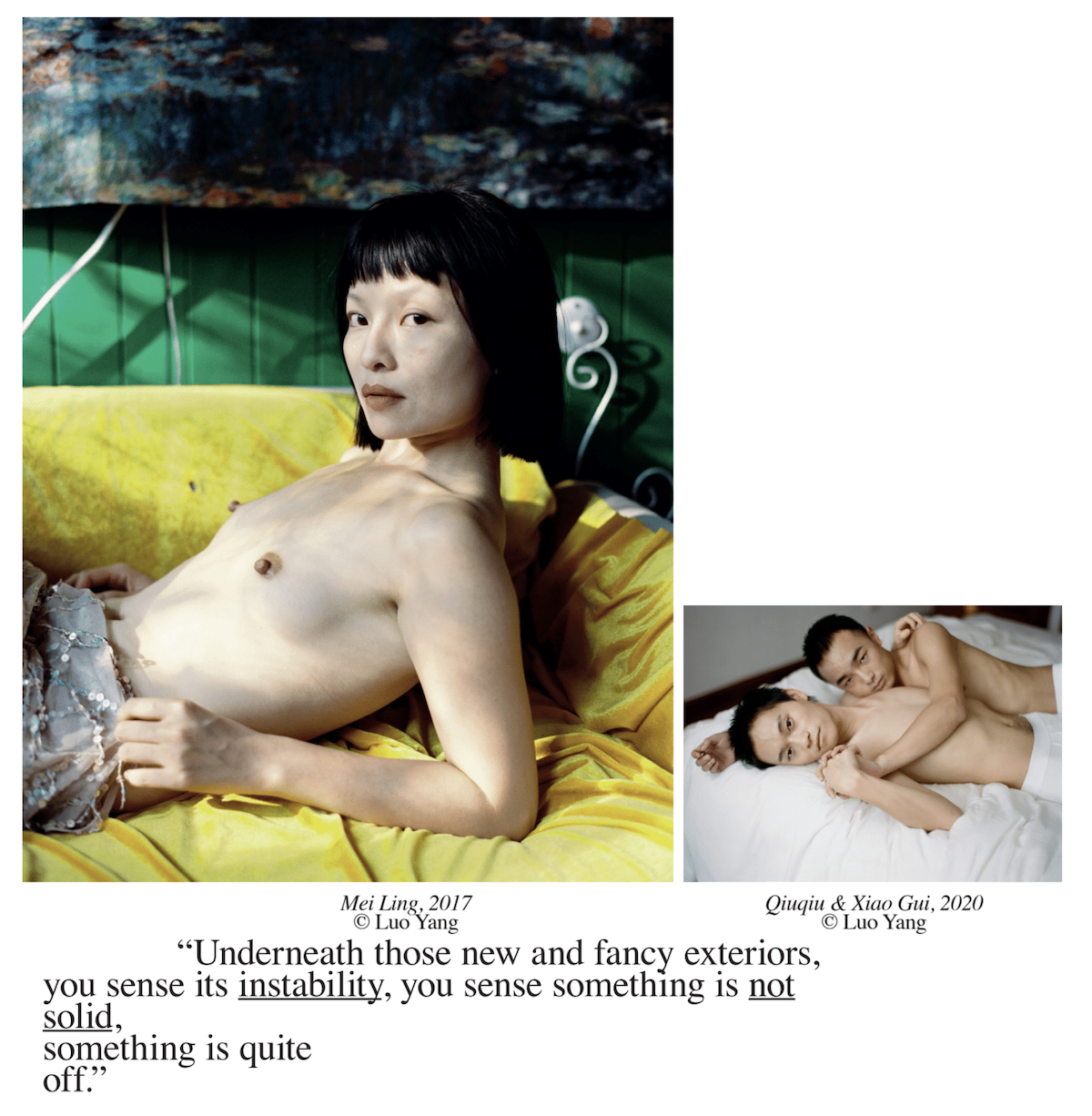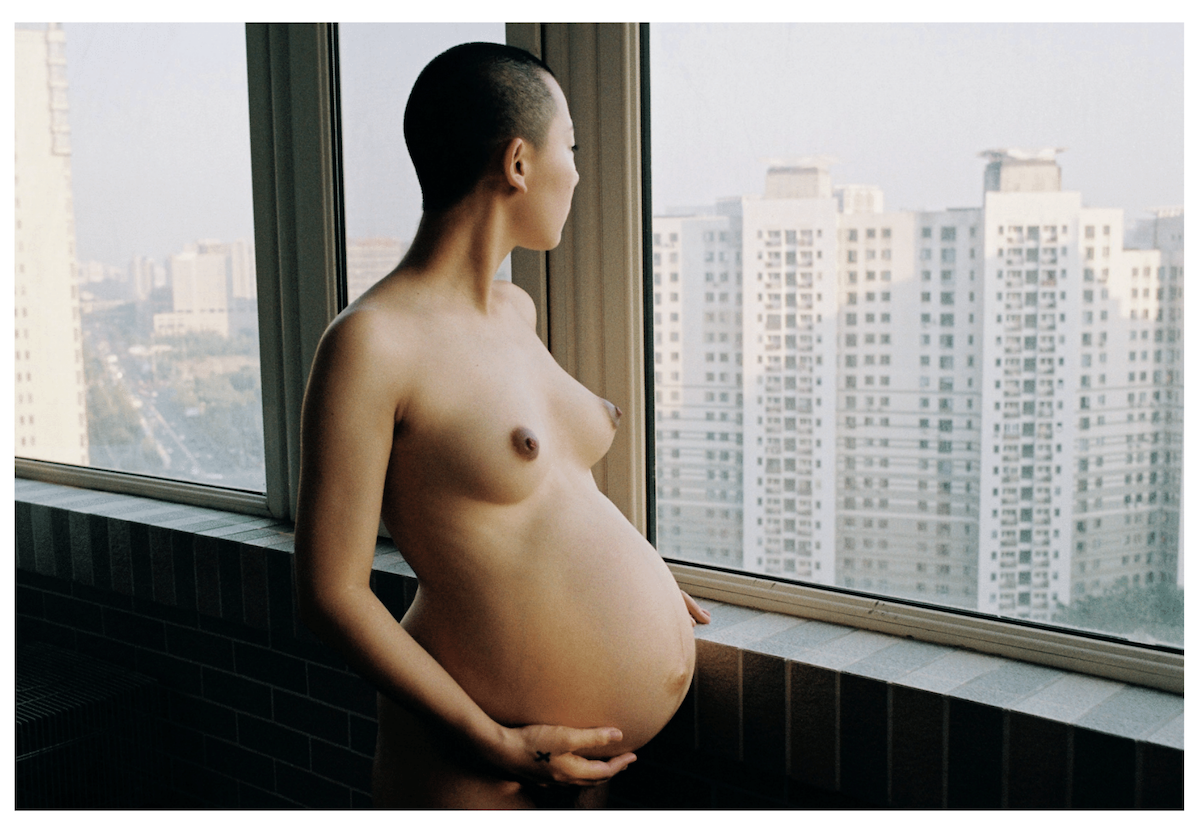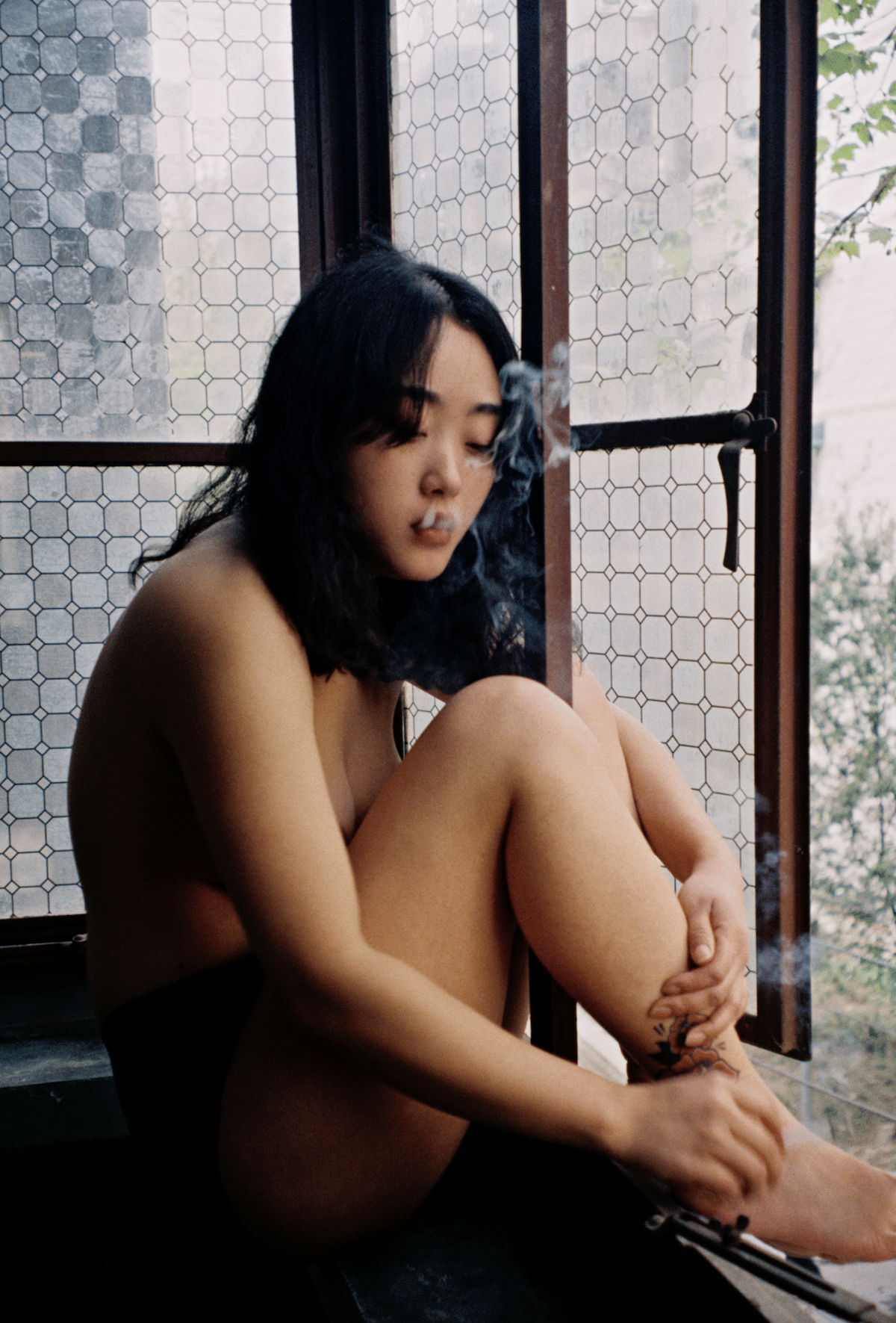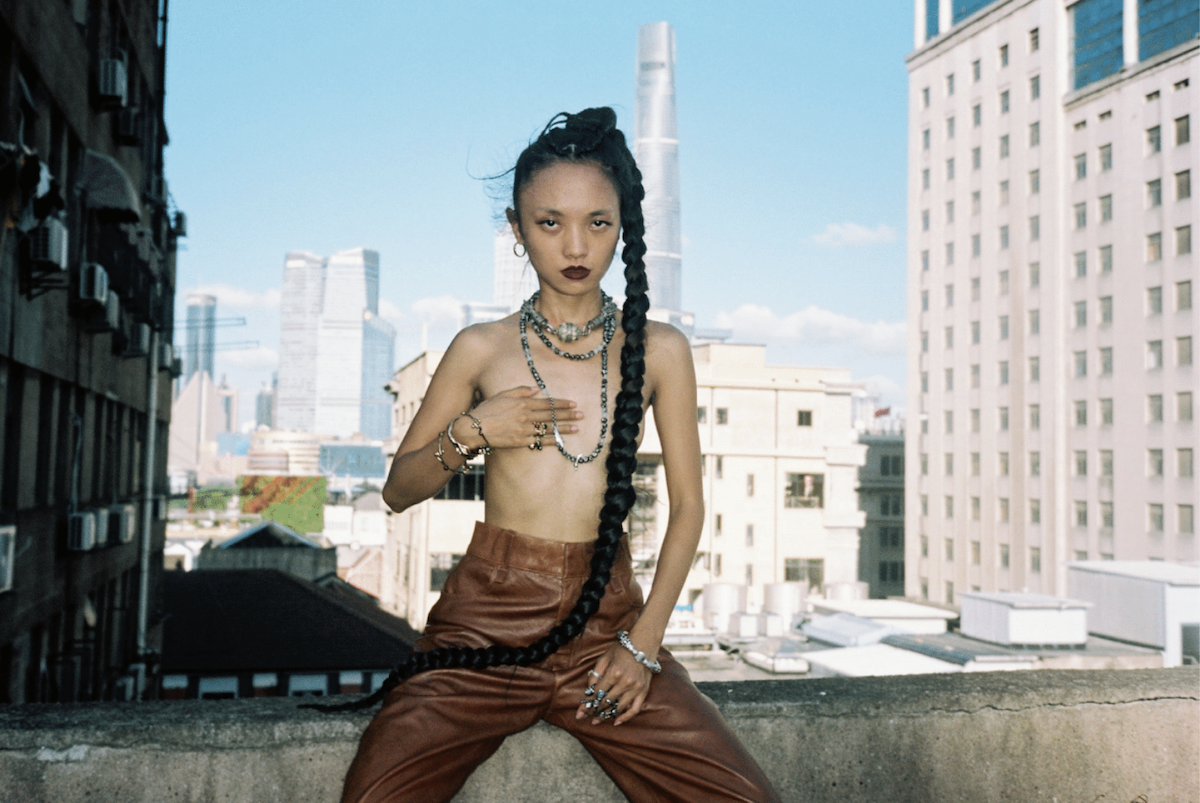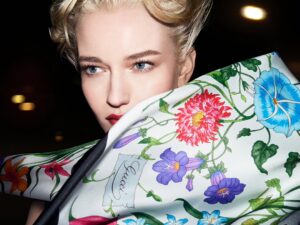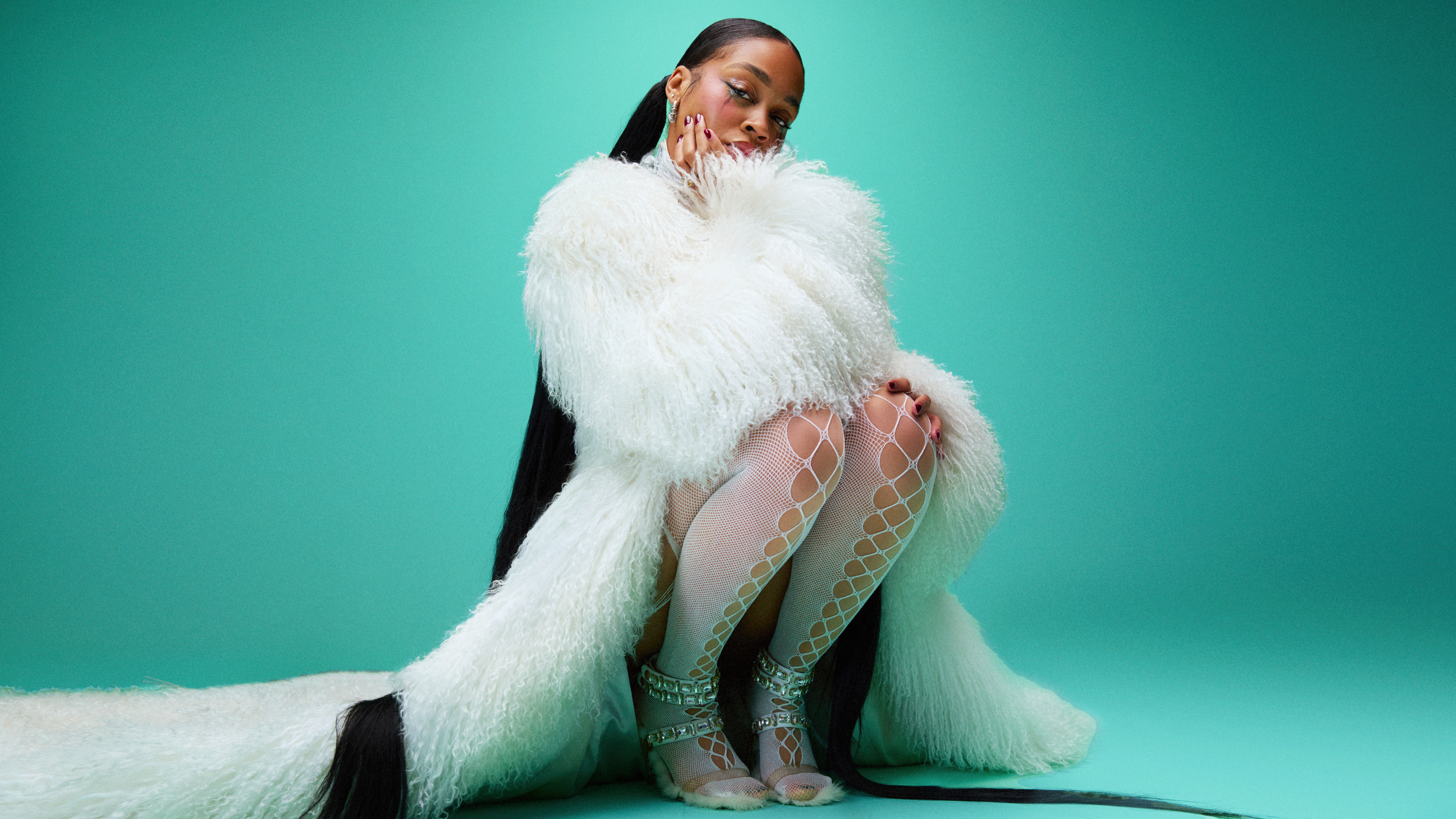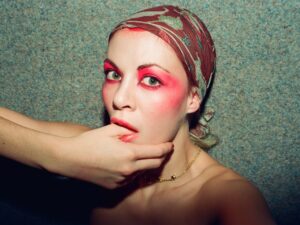EYES WIDE SHUT: Sensual Uncertainty with Certain Sensuality
An Interview with Luo Yang
Taken from our Fräulein F/W ’20 Print Issue ‘Leben’
By Carole Panet
What is the essence of trust? With trust as the substrate to her photography, Luo Yang’s sensual chronicle of young women circles around issues of identity and representation in a world of accelerated hyperreality. Her work is characterized by a deep interest in human relations. In our interview, she gives insight into her practice and what is most essential to the experience of being a woman. A meditation on the power of empathy.
